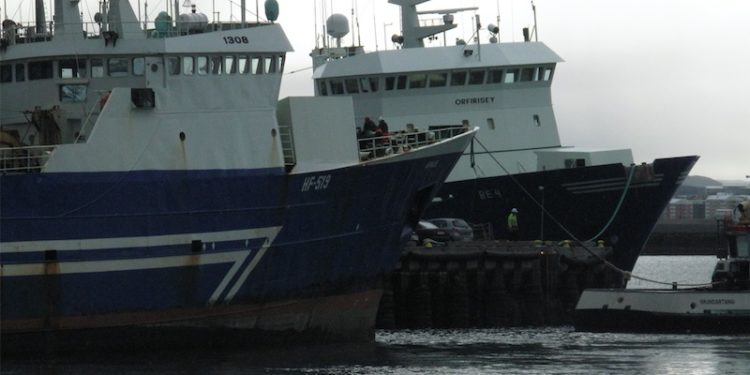The agreement over access to the Loophole, the area of international waters in the Barents Sea between the Norwegian, Russian and Svalbard zones, is no longer functioning, according Norwegian vessel operators’ federation Fiskebåt.
Fiskebåt has written to the Norwegian Ministry of Food and Fisheries, stating that it no longer believes that the agreement between Iceland and Norway strengthens Barents Sea fisheries.
The Loophole agreement dates back to 1999, ending a dispute between Iceland and Norway, after fishing vessels under the Icelandic and other flags had been fishing in the international zone, allowing Iceland a Barents Sea cod quota in exchange from ending the fleet’s activities in Loophole itself.
According to Fiskebåt, this year Iceland has a 8121 tonne cod quota in areas of the Norwegian zone under the terms of the Loophole agreement, plus a 30% by-catch allowance. In return, Norway has access to some groundfish and capelin quotas in Icelandic waters, but Fiskebåt’s director Audun Maråk says that the Icelandic authorities have imposed regulations that make it difficult for the Norwegian vessels to catch their allocations, skewing the agreement.
He commented that the Norwegian industry has for years been asking for the Loophole agreement with Iceland to be terminated or renegotiated, and Fiskebåt continues to urge the Norwegian authorities to take the initiative to end the agreement or negotiate new terms.
In his letter to the Ministry, Audun Maråk states that Fiskebåt’s position is that Iceland takes positions that are not based on science, such as on mackerel, and therefore sees no reason for Iceland to receive any preferential treatment in agreements over access to the Barents Sea.









